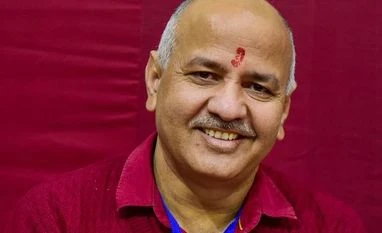Delhi's new cultural policy will be an instrument in transforming the society's mindset and would not be limited to cultural events only, deputy chief minister Manish Sisodia said on Monday.
Speaking at the first virtual meeting of the Delhi Cultural Policy Advisory Committee, Sisodia said Delhi belongs to everyone and it should reflect the diverse culture and heritage of the nation.
He said art and culture should play a part in enabling the society to stand against hatred and violence.
"Violence and hatred is increasing and an all-round collapse of the moral fabric is evident these days. In such a situation, the government of Delhi is formulating a comprehensive cultural policy to ensure meaningful contribution of art and culture towards transforming the mindset of the society," he said.
The Delhi government wants to create a cultural atmosphere in the city. Just like people go to cinemas and restaurants, now they will have many options to choose from in terms of cultural events as plenty of them will organised in the city, he said.
Participating in the meeting, actor and member of the committee Manoj Vajpayee said children from the slums should be introduced to theatre education to help them join the mainstream.
More From This Section
Citing the example of French capital of Paris where street artists performing in public spaces is a common sight, he suggested that the Delhi government provide spaces where artists can showcase their talent so that the city can be projected as a cultural capital.
Sisodia said the cultural policy is being formulated by a 15-member advisory committee and it will submit its report within two months.
In addition to Bajpayee, the advisory committee consists of personalities and experts from the field of art and culture including actor Javed Jaffrey, JNU's School of Arts and Aesthetics Professor Ira Bhaskar among others.
Sisodia said that the Delhi government has taken many steps to advance arts and culture but until now, there was no clear structure of these activities.
"This is the reason why we want to create a holistic cultural policy so that it is possible to create a better cultural environment in a systematic way," he added.
)